Intensive Care Unit
Cabrini’s Intensive Care Unit (ICU) provides care for a wide variety of medical and surgical conditions. Our team of experts are highly skilled in the management of patients following open heart or other complex surgeries. We aim to provide a calm, supportive environment for patients and their families, with a focus on patient-centred outcomes.
About our ICU
There are times when a patient requires intensive care following major surgery or due to a sudden deterioration in their health. At Cabrini’s ICU we all share the same goal: to help patients and their families through this difficult time by creating a surrounding of calm and confidence.
Our Level 3 ICU admits more than 1600 people each year and provides care for 16 patients at any one time. We are affiliated with Monash University, and accredited with the College of Intensive Care Medicine (CICM) for 12 months of advanced training.
Cabrini’s ICU specialists and nursing staff have extensive experience and skill in caring for patients following:
- All cardiac surgery
- Advanced thoracic surgery
- Liver resection
- Complex upper gastrointestinal surgery (such as oesophagectomy and pancreatic surgery)
- Complex surgery in both complex and/or elderly patients
- Complex ENT surgery or airway emergencies
- Urological surgery or procedures (such as nephrectomy)
-
General Enquiries
-
Operating hours
24 hours, 7 days a week
-
Additional Information
The ICU is located on first floor of the theatre block. Directions can be obtained from the main reception.
-
Locations
About the ICU environment
Intensive care specialists are available 24 hours a day and lead the ICU medical team. They work with the surgeon, referring physician or specialist, and are supported by registrar doctors. The doctors see patients twice daily on rounds and continually review patients throughout the day and night. The medical staff are available to discuss issues with you upon request.
The nurses in intensive care are qualified critical care nurses or nurses undertaking specialty training in critical care. Nursing staff will keep you informed about your family member’s condition, therapy and progress.
The environment in which we care for patients and their families is highly technical. Much of the sophisticated equipment used in the ICU has alarms or flashing lights. There is no need to be frightened, they are there to attract the attention of staff members.
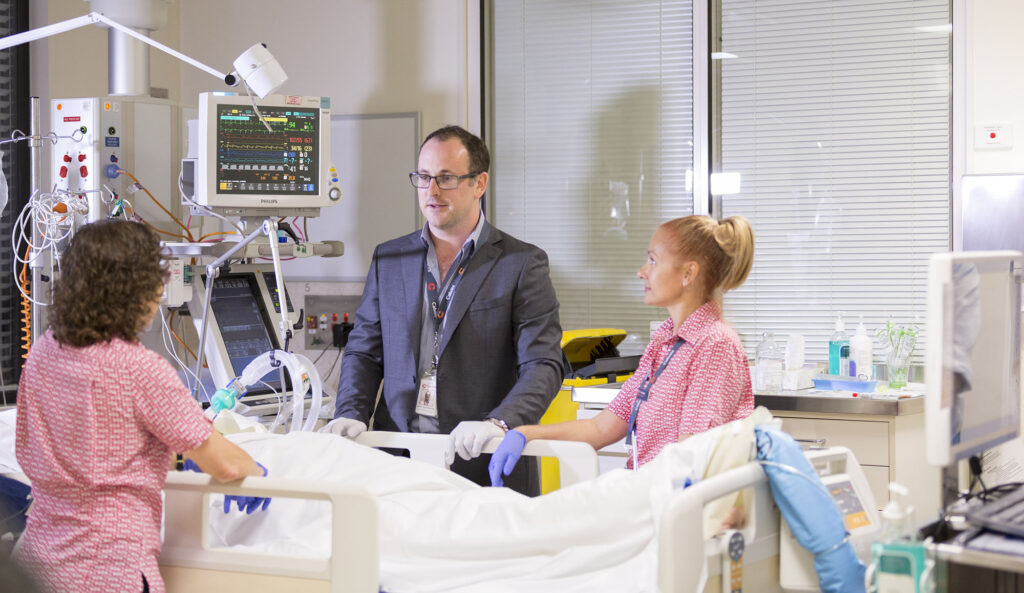
Visiting a patient in ICU
We understand that families will want to see their relative or friend as soon as possible. However, patients who arrive from the operating theatres must first be transferred onto the ICU equipment, settled, and assessed. In some cases, diagnostic tests (such as x-rays) need to be completed before anyone is able to visit.
There are no time restrictions on when you can visit our ICU, however we ask you to please let us know if you are planning to come outside normal hospital hours (10 am – 8 pm). For more information about visiting our hospitals and facilities, please see our information for visitors.
What you can do to help your loved one and the ICU team
-
Touch and familiar voices can be an important part of care. Please remember that even though your family member may be unconscious or heavily sedated, they may be able to hear and feel.
-
Children are welcome in the ICU under the supervision of a parent or adult family member. We encourage the parent to come in first to assess if it is appropriate for their child to visit.
-
The bedside nurse is able to take calls from immediate family members 24 hours a day. We recommend that calls are made by one nominated family member only to avoid confusion. Family members can then contact the nominated family member for information and updates.
-
Please leave a phone number to enable ICU staff to contact you if the patient’s condition changes.
-
Upon entering the ICU, you need to wash your hands. This is necessary to reduce the risk of infections. If you are unwell, please refrain from visiting the unit.
-
You can help your loved one while they are in ICU by taking good care of yourself. For example, rather than being at the bedside 24 hours a day, you need to give yourself a suitable break. This will also give the patient time to rest.
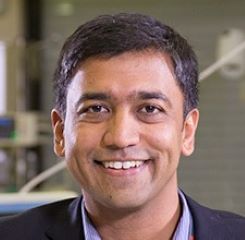
Director of Intensive Care – A/Prof Vineet Sarode
MBBS, PGCertCU, MD, MPH, FCICM, FRACMA, FACHSM, GAICD
A/Prof Vineet Sarode is the Director of Cabrini’s Intensive Care Unit (ICU) and Director of Medical Services (Patient Safety) at Cabrini Health. Vineet completed his intensive care medicine training with the College of Intensive Care Medicine (CICM) at the Alfred Hospital in Melbourne. He previously worked as a Specialist Intensive Care Physician at Epworth Health, Peter MacCallum Cancer Centre and Eastern Health in Melbourne. His interests include cardiothoracic and perioperative intensive care medicine, leadership and management in ICU and medical services and clinical governance. He completed MPH (Master of Public Health) in Health Management stream at Monash University and has also completed training for medical administration and obtained fellowship of Royal Australasian College of Medical Administrators. He currently holds an Adjunct Associate Professor appointment at the Department of Medicine at Monash University.
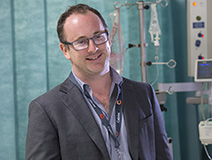
Deputy Director of Intensive Care – A/Prof David Brewster
MBBS FCICM FANZCA Graduate Certificate of Health Professions Education
A/Prof David Brewster is the Deputy Director of Intensive Care and the Clinical Dean for the Monash University Clinical School. David is currently a practicing specialist in both anaesthesia and intensive care medicine. He has a strong clinical interest in intensive care after cardiac surgery, advanced airway management in intensive care, and anaesthesia for both high-risk patients and the elderly. His current areas of research include team training, leadership and airway practices in intensive care medicine. He is currently teaching and researching airway management in critically ill patients.
David has had significant experience in developing and implementing medical education in Australia and overseas. He has held a variety of undergraduate teaching roles for the medical school at Monash University since 2006. David is also completing a PhD at Monash University in the field of medical education.
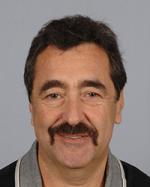
Prof Warwick Butt
MBBS, FRACP, FCICM, FELSO
Prof Warwick Butt is a Senior Intensivist at Cabrini Hospital, Malvern. He is also the current Director of The Royal Children’s Intensive Care Unit, Melbourne. He is on the editorial board of Australian Critical Care and Resuscitation (the journal of the College of Intensive Care Medicine, Australia), Pediatric Critical Care Medicine (Journal of World Federation of Pediatric Intensive Care Medicine), the Journal entitled Perfusion and the Canadian Journal of Cardiology and a regular reviewer for Adult European and US Intensive Care Societies (Intensive Care Medicine, Critical Care Medicine) and the British Journal of Anaesthesia.
Warwick has had over 350 scientific communications and been an invited lecturer at adult and paediatric world congresses in both general and cardiac critical care and anaesthesia. His major research interests include the prediction and assessment of the short and long-term outcome of ICU, Traumatic Brain Injury and the use of extracorporeal technology (ECMO, RRT, and CVVP) in critical illness. He is an adjunct Professor at Monash University and a research group leader (clinical sciences theme) Murdoch Children’s Research Institute.
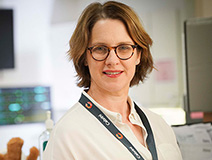
Dr Deirdre Murphy
MB BCh BAO(Hons), MRCPI, FCARSCI, FCICM, PGDipEcho, DDU (Critical Care)
Deirdre is a Senior Intensivist at Cabrini ICU. She has worked as an intensivist in Melbourne since 2002. Prior to working at Cabrini she was a staff specialist at the Alfred from 2003 and Head of the Cardiothoracic ICU from 2011 -2016. Deirdre has an interest in echo and ultrasound in critical care and has been involved in setting up and running courses on transthoracic echo, ultrasound and transoesophageal echo. She is an examiner for DDU (Diploma of Diagnostic Ultrasound, ASUM). Her research interests include advanced heart failure therapies and cardiothoracic intensive care. She is a regular reviewer for Annals of Intensive Care, British Journal of Anaesthesia and Journal of Heart Lung Transplant. She is an adjunct senior lecturer at the School of Public Health and Preventative Medicine Monash, and is a tutor for Biomedical Science at Monash University.
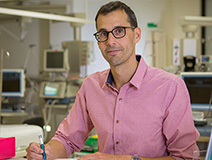
Dr Steve Philpot
MBBS FCICM FANZCA PG Dip CU
Steve Philpot is an Intensive Care Specialist at Cabrini Hospital with a special interest in end of life care, organ and tissue donation, communication skills training and empathy in the workplace.
He is the National Lead Trainer for the DonateLife Family Donation Conversation Workshops, the convenor of the CICM communication program “How To Run An Effective Family Meeting”, convenor of the Cabrini Health “Shared Decision Making” workshop and chair of the Cabrini Health End of Life Care Committee. He is an Adjunct Senior Lecturer at Monash University. Steve is also an examiner for the Fellowship Examination of the College of Intensive Care Medicine.
He is currently completing a Masters of Health and Medical Law at Melbourne University.